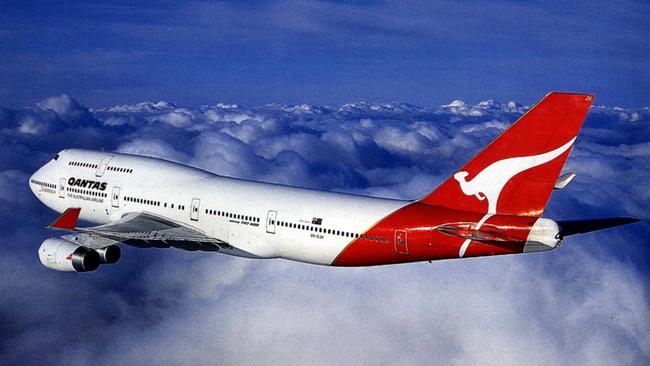Albanese’s credit card crackdown set to hit airline frequent flyer points: Slyp
Frequent flyer credit cards are set to become a casualty of the Albanese government ‘cracking down on unfair and excessive card surcharges’. But it also creates an opportunity.

Frequent flyer credit cards are set to become a casualty of the Albanese government “cracking down on unfair and excessive card surcharges”, one of the nation’s top tech entrepreneurs says.
The Reserve Bank has opened the door for banning surcharges by 2026, sparking the biggest shake-up of the payments industry in years but potentially crippling a fruitful partnership that began between the banks and airlines more than 30 years ago.
The banks began partnering with airlines in the mid-1980s offering points for flight upgrades and free trips for every dollar spent. The model became a big hit, with Qantas Frequent Flyer now having more than 15 million members and Virgin Australia’s Velocity 12 million.
But in recent years points have been steadily devalued and Paul Weingarth, co-founder of smart receipt platform Slyp, said the crackdown on surcharges would exacerbate the decline.
“I don’t think it’s going to kill it overnight. But the payment space is very, very complex in a variety of different ways,” said Mr Weingarth, who founded Slyp with Spiro Rokos.
“There’s continual review and down pressure on the cost of the payments, both on credit and debit cards and interchange. That’s only going down south.
“That’s why things like credit card points, they’ve been coming down over the years because of interchange regulation. That has had a direct effect on the reduction. What used to be a few points per dollar now might be 1 to 1½ points per dollar.”

In 2003, the RBA introduced benchmarks for credit card interchange fees – what banks charge each other to process credit card transactions. This provided a temporary hit to the loyalty scheme credit card programs, but it eventually recovered.
But in 2017 the RBA put a new cap on credit card interchange fees in 2017, adding more pressure on frequent flyer points schemes. The RBA’s new review into surcharges is set to see the banks further reduce the number of points they buy from airlines.
This raises a question of who pays for loyalty schemes accessed via credit cards, and Mr Weingarth said the market was ripe for disruption with technology and innovation playing a key role.
Slyp has launched a new product, Go Rewards, that integrates stock keeping unit (SKU) level receipt data to deliver data and insights aimed at bringing retailers and suppliers closer to the consumer. It allows loyalty points to be funded not from credit card surcharges – a traditional model that’s being up-ended – but the supplier or retailer, if a customer opts-in.
“Merchants are more than happy to fund those rewards. It’s a form of a cash back to the customer. They want it to be spent back with them. And they have to give even more incentive that the money is spent back within their store network,” Mr Weingarth said.
“We don’t disintermediate, we don’t own that customer. That’s the merchant’s customer. So we make sure that merchant, that customer, have a direct relationship.
“Everything’s based on consent. If the customer wants the brand to connect with them directly, they can enable that for them as well as the supplier.”
The plan to ban the debit card surcharges, running at almost 8c per transaction, comes after months of growing unrest over the fees that have ballooned as more businesses slap extra costs on card transactions.
Prime Minister Anthony Albanese said the government was “prepared to ban debit card surcharges”, subject to further work by the RBA and safeguards to ensure both small businesses and consumers can benefit from lower costs.
“The declining use of cash and the rise of electronic payments means that more Australians are getting slugged by surcharges, even when they use their own money,” Mr Albanese said.
NAB boss Andrew Irvine seconded the sentiment, revealing he’d been slugged a 50c surcharge in a recent coffee run in Sydney, while the Australian Banking Association said the rules were “no longer fit for purpose”, citing the rise of electronic payments.
Tyro CEO Jon Davey said consumers should not pay excessive surcharges, “nor should businesses fund the consumer benefits that come with high-cost cards and loyalty programs”.
“Debit offers consumers and merchants the ability to make convenient, secure and traceable transactions,” he said.
“We support any review that assesses the true cost of card acceptance, including both debit and credit, for the fair regulation of payment acceptance in Australia.”
The RBA said it would investigate the regulation of the payments system, including examining the costs businesses faced when taking card payments as well as the broader surcharging framework.
More Coverage
Originally published as Albanese’s credit card crackdown set to hit airline frequent flyer points: Slyp




